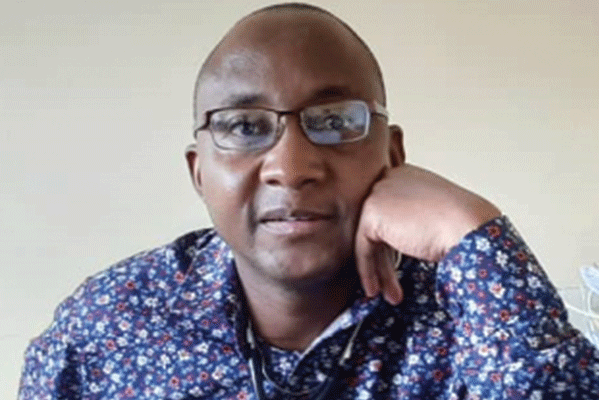
health talk:with Dr Johannes Marisa
The Covid-19 pandemic continues to ravage the entire world with close to one million people having lost their lives and more than 32 million people having been affected. So much focus has been given to Covid-19 and our fear is that chronic tropical diseases like tuberculosis and malaria can go undetected. As summer approaches characterised by high temperatures and rainfall, the burden of malaria will surely increase. We should not only dwell on Covid-19 as we might be caught off-guard.
Nearly half the world population is exposed to malaria and in 2018, an estimated 228 million malaria cases occurred globally up from 212 million in 2015. A total of 405 000 malaria deaths were recorded in 2018 with the Sub-Saharan region and India carrying 85% of the global malaria burden. In Zimbabwe, malaria is a major public health problem affecting all age-groups and, according to World Health Organisation (WHO) report of 2016, 79% of the population are at risk of contracting the disease. The Ministry of Health reported a surge in case fatality rate from 6,1% in 2012 to 13,8% in 2014.
What are the common symptoms and signs of malaria?
A malaria infection can manifest with some of the following:
lFever
lChills
lHeadache
- Chamisa under fire over US$120K donation
- Mavhunga puts DeMbare into Chibuku quarterfinals
- Pension funds bet on Cabora Bassa oilfields
- Councils defy govt fire tender directive
Keep Reading
lNausea and vomiting
lMuscle pain and fatigue
Risk factors
There are some patients who are at risk of contracting malaria and extra care should be taken on them. They include:
lThe young children and infants.
lOlder adults.
lTravellers coming from areas with no malaria.
lPregnant women and their unborn children.
lPeople living with HIV.
lThose with sickle cell anaemia.
lThose who underwent splenectomy.
Do not take chances upon noticing symptoms among the above listed groups of patients. Get tested fast and get initiated on medication. Complications of malaria can be very fatal and can include some of the following:
Cerebral malaria: Cerebral malaria may cause seizures and coma. Swelling of your brain or brain damage may occur.
Anaemia: Malaria damages red blood cells which can result in anaemia.
Organ failure: Malaria can cause your kidneys and liver to fail or your spleen to rupture. Any of these conditions can be life-threatening.
Hypoglycaemia: Severe forms of malaria can cause low blood sugar. Very low sugar can result in coma or death.
Breathing problems: Accumulated fluid in your lungs can make it difficult to breathe.
How prepared are we as a nation in containing malaria today?
Malaria management involves vector control, prophylaxis and treatment. With Covid-19 taking a toll on virtually all sectors of the economy, we should not forget about the dangers that can be brought about by malaria. Climate change, erratic funding, local economic and political disturbances as well as increased cross-border population movements contribute to regression of malaria control programmes. Therefore, for 2020 in Zimbabwe, the following are factors that are prevalent in terms of malaria control:
lCovid-19 has overshadowed all other diseases that present with fever. Around May when almost everyone was quaking about Covid-19, very few clinicians were comfortable with handling patients with high temperatures. The Covid-19 fears could have contributed to the malaria fatalities from the beginning of the year. Almost all Covid-19 symptoms are also found in malaria, making it difficult to distinguish without tests.
lThe instability in the health sector is a drawback as hospitals are not fully operational yet. So many hospital services have been suspended with outpatient services being grounded at central hospitals. That was necessitated by Covid-19 control regulations. The University of Zimbabwe department of Medicine and Obstetrics and Gynaecology have been shut down with the registrars being told to go away from the teaching hospitals. This, therefore, leaves the division of Medicine incapacitated to handle medical cases and malaria is one such condition.
lVector control measures have been hampered for 2020 with very little progress being made in the distribution of materials like mosquito nets. With restricted movement due to Covid-19, malaria control personnel could not penetrate a lot of areas for health education and material distribution.
lThe stocks of anti-malarial drugs are satisfactory in the provinces and districts with all the major drugs used in the treatment of malaria available. Uncomplicated malaria makes use of Co-artemether, a combination of Lumefantrine and Artemether. Complicated malaria makes use of intravenous drugs like Artesunate. These drugs are readily available in many government hospitals. Surprisingly, a lot of private pharmacies in Harare do not have stocks of Artesunate which makes management of complicated cases very difficult. The testing kits are readily available in many health centres. Laboratories are fully capacitated to do malarial parasite examination.
Let us be wary of malaria. Get to your nearest medical facility once you suspect the disease.
lDr Johannes Marisa is a medical practitioner and public health practitioner who can be accessed on [email protected]











